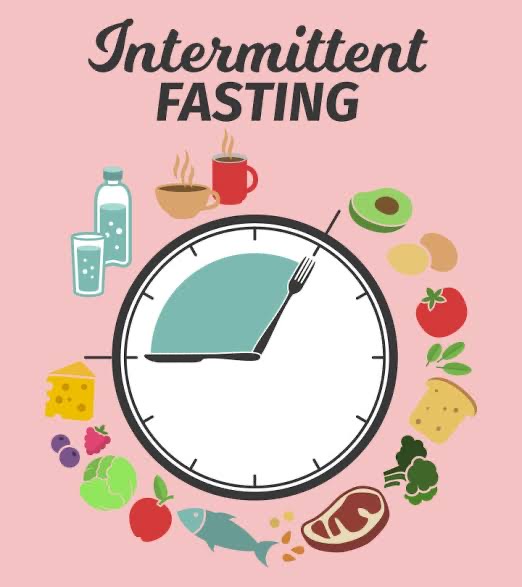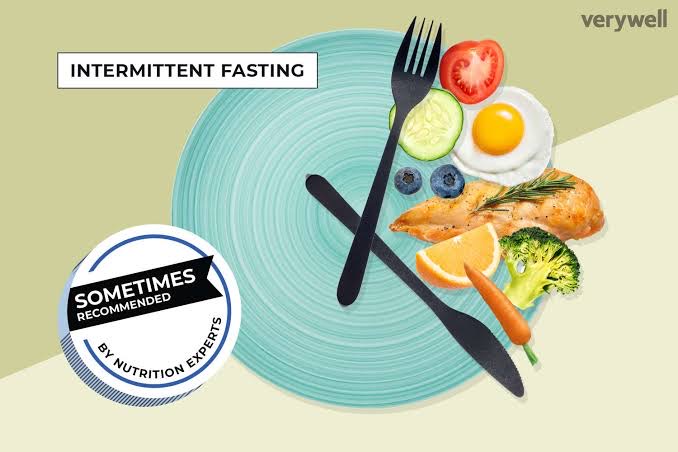TABLE OF CONTENT:
Advantages of Intermittent Fasting
Intermittent Fasting and Its Disadvantages
Intermittent Fasting: A Simple Way to Improve Your Health
 Intermittent fasting is a popular dietary approach that involves cycling between periods of eating and fasting. This eating pattern has gained significant attention in recent years due to its potential health benefits, including weight loss, improved metabolic health, and reduced risk of chronic diseases such as diabetes, heart disease, and cancer. While intermittent fasting can take many different forms, the basic principle involves limiting food intake to specific windows of time, while abstaining from food during the remaining hours of the day or days of the week. In this way, intermittent fasting can be a powerful tool for promoting both physical and mental well-being.
Intermittent fasting is a popular dietary approach that involves cycling between periods of eating and fasting. This eating pattern has gained significant attention in recent years due to its potential health benefits, including weight loss, improved metabolic health, and reduced risk of chronic diseases such as diabetes, heart disease, and cancer. While intermittent fasting can take many different forms, the basic principle involves limiting food intake to specific windows of time, while abstaining from food during the remaining hours of the day or days of the week. In this way, intermittent fasting can be a powerful tool for promoting both physical and mental well-being.
Advantages of Intermittent Fasting:
Introduction:
Intermittent fasting (IF) is an eating pattern that involves alternating periods of fasting and eating. It's not a diet, but rather a lifestyle change that can lead to many health benefits. This article will explore the advantages of IF and how it can help you improve your overall well-being.

Weight Loss
-
One of the primary benefits of IF is weight loss. When you fast, your body goes into a state of ketosis, which means it starts burning fat for energy instead of glucose. This can lead to a significant reduction in body weight, especially when combined with a healthy diet and exercise.
Improved Insulin Sensitivity
-
It can also improve insulin sensitivity, which is important for people with diabetes. When you fast, your body produces less insulin, which means your cells become more sensitive to it. This can help lower blood sugar levels and reduce the risk of developing type 2 diabetes.
Reduced Inflammation
-
Inflammation is a natural response to injury or infection, but chronic inflammation can lead to many health problems, including heart disease, cancer, and Alzheimer's disease. IF has been shown to reduce inflammation in the body, which can improve overall health and reduce the risk of chronic disease.
Improved Brain Function

-
If can also improve brain function by increasing the production of a protein called brain-derived neurotrophic factor (BDNF). BDNF is important for the growth and survival of brain cells, and it's been linked to improved memory, learning, and cognitive function.
Increased Longevity
-
IF has been shown to increase longevity in animals, and some studies suggest it may have the same effect in humans. This may be due to the fact that IF can reduce the risk of chronic disease, which is a major cause of premature death.
Conclusion:
Intermittent fasting is a simple, yet effective way to improve your health. It can help you lose weight, improve insulin sensitivity, reduce inflammation, improve brain function, and increase longevity. If you're considering trying IF, be sure to speak with your doctor first, especially if you have any underlying health conditions.
Intermittent Fasting and Its Disadvantages
Intermittent fasting is a dietary approach that involves cycling between periods of eating and fasting. While it has gained popularity in recent years as a weight loss strategy, it may not be suitable for everyone. In this article, we will discuss the disadvantages of intermittent fasting.

-
Hunger and Cravings
One of the most common side effects of intermittent fasting is hunger and cravings. During fasting periods, the body is deprived of calories, which can cause feelings of hunger and lead to cravings for high-calorie foods. This can make it difficult to stick to an intermittent fasting regimen, particularly in the early stages.
-
Fatigue and Weakness
Another potential disadvantage of intermittent fasting is fatigue and weakness. During fasting periods, the body must rely on stored energy reserves, such as glycogen and fat, for fuel. This can cause a drop in blood sugar levels, which can lead to feelings of fatigue and weakness. This can be particularly challenging for individuals who engage in regular physical activity, as they may not have enough energy to perform at their best.
-
Nutrient Deficiencies
Intermittent fasting may also lead to nutrient deficiencies, particularly if the individual is not consuming a balanced diet during eating periods. Since fasting periods restrict food intake, it can be difficult to obtain all the necessary vitamins and minerals that the body needs. This can lead to deficiencies in essential nutrients such as iron, calcium, and vitamin B12.
-
Disrupted Eating Patterns

Intermittent fasting can also disrupt eating patterns, particularly if the individual is not following a consistent schedule. This can lead to irregular eating habits and may make it difficult to maintain a healthy diet. Additionally, some individuals may overcompensate during eating periods, consuming large amounts of food in a short period of time, which can lead to weight gain and other health issues.
-
Social Isolation
Finally, intermittent fasting can lead to social isolation. Since fasting periods restrict food intake, it can be challenging to participate in social activities that revolve around food, such as family dinners or social gatherings. This can lead to feelings of isolation and may make it difficult to maintain relationships.
Conclusion:
While intermittent fasting may have potential benefits, it is important to consider the potential disadvantages before starting an intermittent fasting regimen. Hunger and cravings, fatigue and weakness, nutrient deficiencies, disrupted eating patterns, and social isolation are just a few of the potential drawbacks of this dietary approach. If you are considering intermittent fasting, it is important to consult with a healthcare professional to determine if it is a safe and appropriate option for you.


You must be logged in to post a comment.